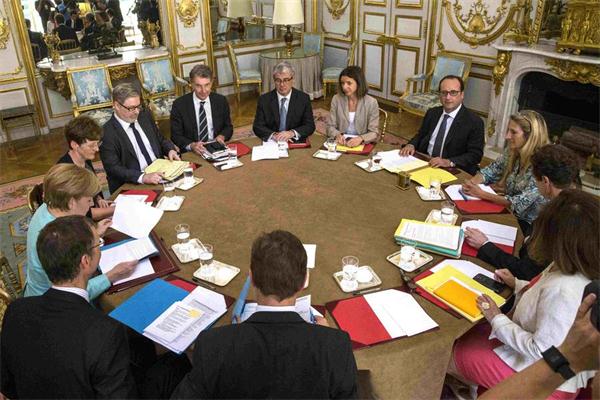Greek 'No' a call for viable growth plan
(China Daily) Updated: 2015-07-07 07:39
 |
|
French President Francois Hollande (R) meets German Chancellor Angela Merkel (L) at the Elysee Palace in Paris, France, July 6, 2015. Hollande and Merkel met in Paris on Monday evening following the Greek people's resounding 'No' to a European cash-for-reform deal in a referendum in Greece. [Photo/Agencies] |
In spite of repeated warnings that a "No" vote would mean a possible exit from the euro and drive its fragile financial system into bankruptcy, Greece chose a resounding "No" to creditors' bailout terms on Sunday.
However, European leaders should not be too stunned by the Greek people's rejection of the rescue package. Instead of interpreting it merely as an irresponsible move to throw the future of the eurozone into doubt, they should read between the lines and see it as a call for a workable plan to get Greece out of the mess it is in.
Such a need should and can be met if those around the negotiating table think big and adopt the broader perspective of the global economy, which still needs to emerge from the long shadow cast by the 2008 global financial crisis.
Contradicting predictions of a tight contest, an overwhelming majority of Greeks voted to reject the deal that would have imposed more austerity measures on them.
The dire consequences of a disorderly exit from the single currency cannot be felt more keenly than in Greece as the ongoing debt crisis has made people's lives more miserable day by day. Such daily hardships may even have served as the reason why a more-than-expected number of Greeks chose to vote "No".
But the underlying cause lies not with the illusion that Greece has nothing more to lose after all the years of suffering, which have seen the country's GDP shrink by a quarter and unemployment grow to over 25 percent, with youth unemployment over 50 percent. Rather, it is the Greeks' growing desperation about the ineffectiveness of previous bailouts and their hope that restructuring the debts will enable the country to get off its knees.
The Greek government has claimed the referendum result a mandate to strengthen its negotiating position to seek a viable solution. And sooner or later, European leaders will realize the Greek debt crisis represents an urgent call for support for debt-relieving growth.
If that means a Greek demand for a comprehensive growth plan other than simply more forgiveness, European leaders should take it into serious consideration, especially since they are rolling out new big-money plans, and in particular large infrastructure projects, to revive the European economy.
Besides, China's strong support for a united and prosperous EU and strong euro, as Chinese Premier Li Keqiang made clear to his EU counterparts in Brussels last week, can also be tapped to help build a viable growth plan for the Greek economy.











